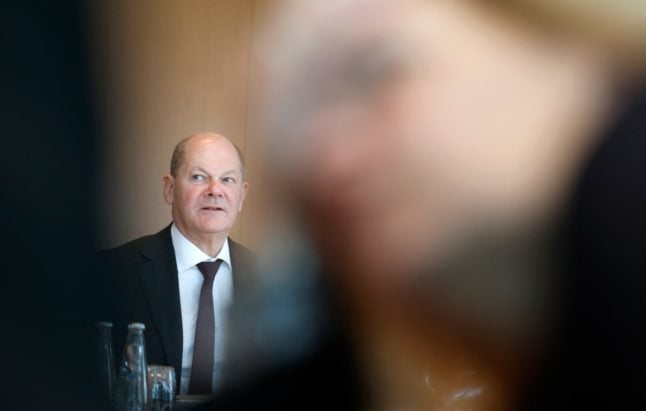South Africa launched an emergency case at the ICJ arguing that Israel stands in breach of the UN Genocide Convention, signed in 1948 in the wake of the Holocaust, and wants the court to “immediately” stop its military operations in Gaza which were launched after the October 7 Hamas attacks.
Namibia, a southern African country where the first genocide of the 20th century took place under German colonial rule, “rejects Germany’s support of the genocidal intent of the racist Israeli state”, the presidency said in a statement late Saturday.
Lamenting “Germany’s inability to draw lessons from its horrific history”, Namibian President Hage Geingob expressed “deep concern” for the German government’s decision Friday of having “rejected the morally upright indictment brought forward by South Africa”.
READ ALSO: Germany rejects UN ‘genocide’ charge against Israel
Geingob accused Berlin of “ignoring” the “deaths of over 23,000 Palestinians in Gaza” and defending in front of the ICJ “the genocidal and gruesome acts of the Israeli Government”.
The German government on Friday “decisively and expressly” rejected South Africa’s accusations against Israel, calling it a “political instrumentalisation” of the UN Genocide Convention with “no basis in fact”.
Germany was responsible for the massacres of more than 70,000 Indigenous Herero and Nama people in Namibia between 1904 and 1908, which historians
widely consider the first genocide of the 20th century.
“The German Government is yet to fully atone for the genocide it committed,” the Namibian presidency said Saturday.
In May 2021, after more than five years of negotiations, Germany said it recognised it committed a “genocide” in the territory it colonised from 1884 and 1915 and pleged more than €1.1 billion ($1.2 billion) in development aid over 30 years to benefit the descendents of the two tribes.



 Please whitelist us to continue reading.
Please whitelist us to continue reading.
Member comments